Maybe the Moon
Bantam Press 1993, a division of Transworld Publishers Ltd
ISBN 0593 027655
The Lavender Menace LGBT+ Archive has been growing for about a year now. One of our books was rescued from a remainder shop – Maybe the Moon by Armistead Maupin, a hardback novel published in 1993. On the front is a ‘friendly label’ showing a catastrophic drop in the price.
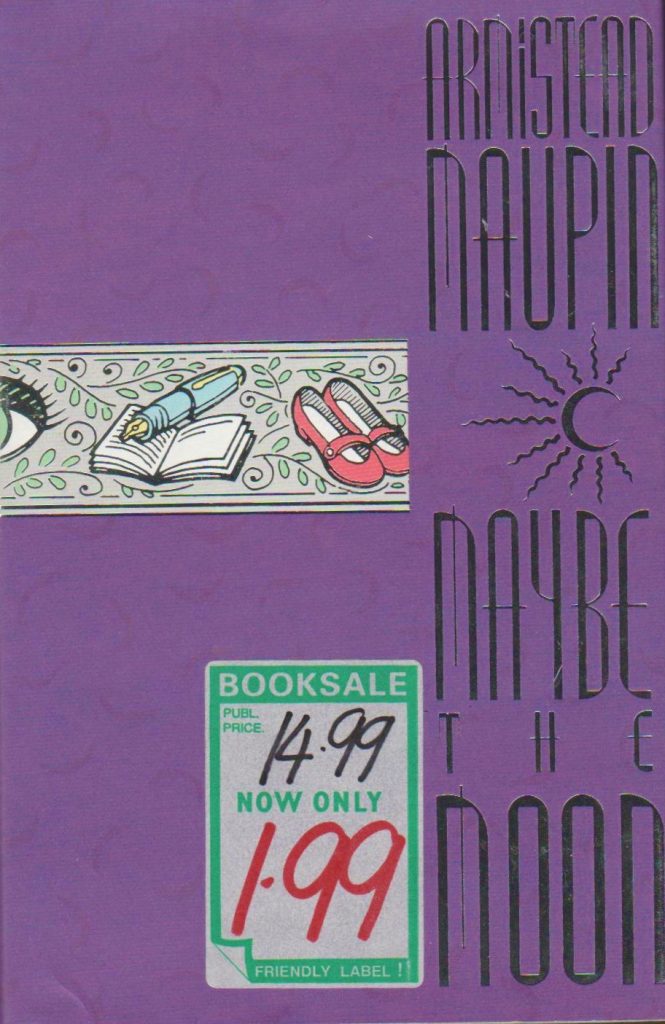
Why did the publisher, Transworld, expend so much effort to create a beautiful design? At the time the bookshop opened, few commercial publishers would go anywhere near a lesbian or gay book. We may never know what inspired Transworld’s change of heart. But Maupin’s novel lies at a crossroads in the history of queer books – and of our bookshop itself.
By the 1990s the Tales of the City novels were popular. They had even spawned a tv series (though the negotiations around the queer content led to years of delay.) But, meanwhile, Maupin had moved on to something very different. He was writing and publishing Maybe the Moon.
Tales of the City tells stories of colourful, bohemian San Francisco. They are comic and light-hearted though often serious as well (focussing, for instance, on the HIV epidemic.) Maybe the Moon comes from a very different place – and not just because it’s set in Hollywood.
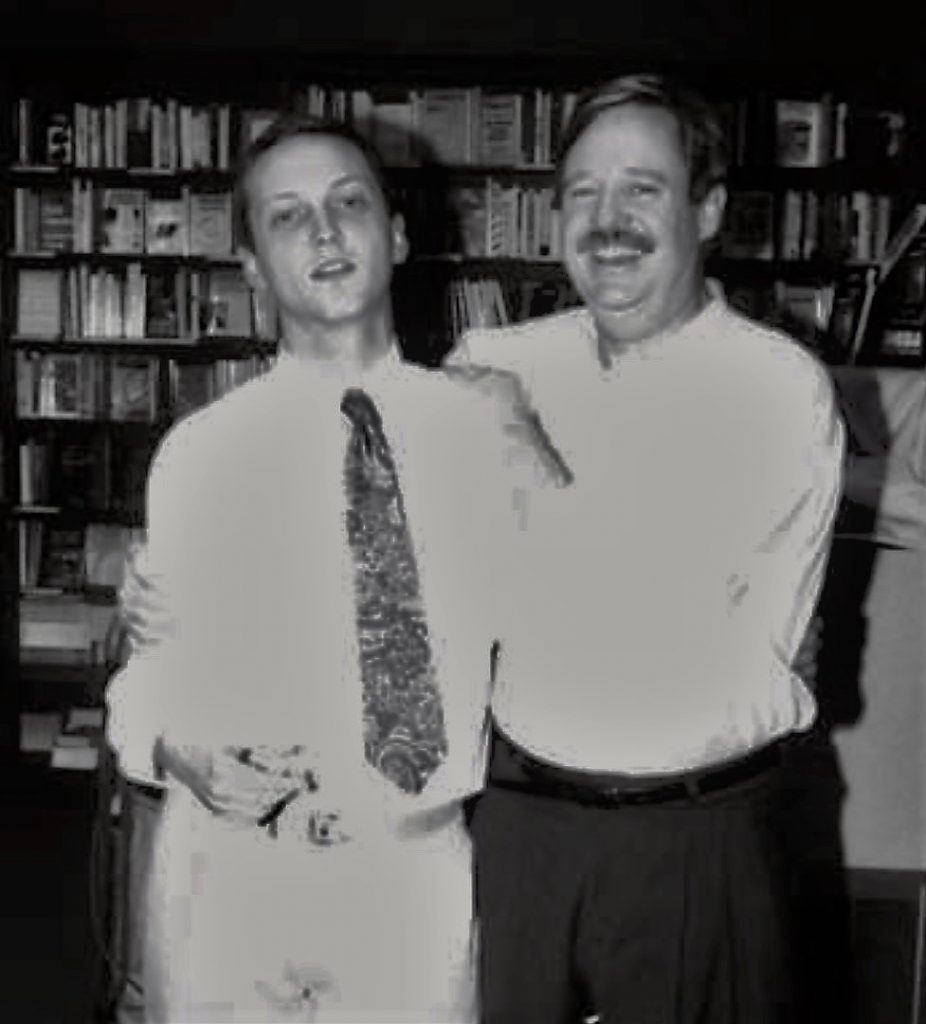
Maupin’s reading for Maybe the Moon filled West & Wilde’s large shop. Tales of the City fans listened as Maupin explained that this was a different novel, not part of the San Francisco series, based on the life and writings of his friend Tamara De Treaux, who had died recently at age 30.
De Treaux was a Hollywood actor who had played the title role in one of the most famous films of all time, E.T.: the Extra-Terrestrial. But she remained unknown. She played the legendary alien in a rubber suit and was never credited. She was 31 inches tall.
‘She was invisible,’ Maupin told San Francisco Focus magazine in 1992. ‘It occurred to me that there was a very strong parallel between her and lesbian and gay actors who are required to stay invisible, to remain in the closet.’ De Treaux refused to obey the rules and gave interviews about her role to magazines and newspapers, drawing Spielberg’s anger – and Maupin’s respect.
‘She was the inspiration for my character Cady,’ he said. He insisted that Cady was an amalgam of De Treaux’ experience and his own. He believed, he said, in empathy as the basis of storytelling (and living).
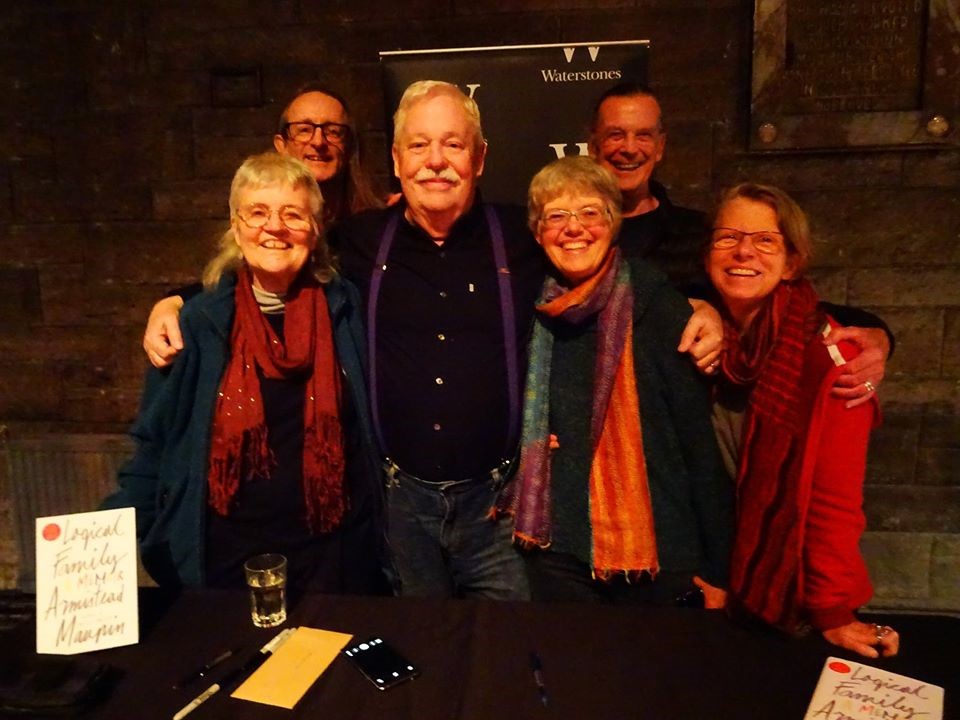
Now, almost 30 years later, Maybe the Moon is out of print. The lesbian and gay community (as it was known then) has changed dramatically. But how does the novel read today?
Maupin’s portrait of Cady’s life – seen through her notebooks – is stark. There is gentle humour, as in Tales of the City, but some of it is darker. We learn how Cady copes with people’s ignorance, with constant hostile stares – with living in a ‘normal’ world which is, to her, a set for a film about giants. She lives by her feisty wit, but often has to bite her tongue because there is so much about her life that people simply cannot understand.
And then there’s sex.
To most people, Cady is a sexless freak – but she is strongly heterosexual and frank about it. ‘If sex with a little person was kinky by definition,’ she explains, ‘I had no choice but to embrace kink and be damned grateful for its existence.’
‘It was a question of perception,’ she adds, ‘and taking control of my own destiny.’
Eventually, she falls in love with Neil, a black piano player. He is a loyal friend – and then he and Cady become lovers. Their relationship is affectionate, sexual, and full of humour – even though it is not easy or without cost. One of the best parts of the book is their shy but joyous first night together on Catalina Island.
Meanwhile, Cady’s friends are outsiders like herself: Renee, warm-hearted, generous and somewhat dim, getting older, still single, and very talented at finding the wrong men; Jeff, gay waiter and writer – who is determined never to be closeted, but, like Cady, finds that honesty comes at a price. He helps her in a plot to defy her producer’s orders and appear at a lavish movie event, not as a character in a rubber suit, but as herself.
In his interview for San Francisco Focus, Maupin detailed his own struggles with Hollywood. One producer wanted to make a version of Tales of the City without queer characters. A screenwriter suggested that one of Maupin’s gay characters should become a serial killer.
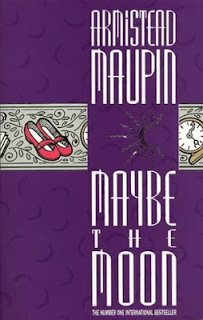
cover published in the UK in 1993
The UK publisher of Maybe the Moon took a different, positive view. The initial print run of the book was 60,000. At least two versions of the silver-and-lavender cover of our copy were produced, as well as another, different, American cover. Someone thought it was a novel which would be bought and remembered.
It marked a time the lesbian and gay community was becoming the LGBT+ community, making a place to stand and facing outward. Like Cady, we were taking control of our destiny. Maybe the Moon has no lesbian, trans or non-binary characters, but Maupin’s view looks forward to the queer writing of today. It shows the moment we changed our vision: Cadence Roth, sexual outlaw, is straight, but she is also queer.
Footnote: Gay writer Paul Magrs blogged about Maybe the Moon in 2012 at http://lifeonmagrs.blogspot.com/2012/05/maybe-moon-by-armistead-maupin.html. You can see the American cover of Maybe the Moon as part of our banner photo at the top of our website. A new series of Tales of the City was launched on Netflix in 2019, with the same queer characters as the original series and no gay serial killers.
Please leave a comment about this review and your own thoughts if you’ve read the book yourself.
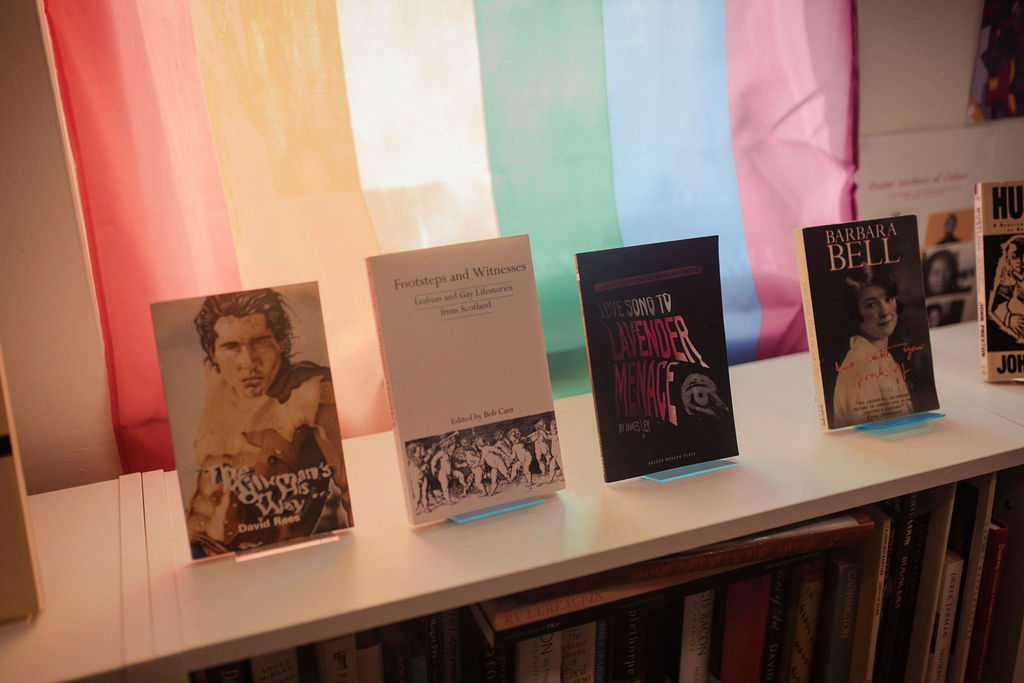


Leave a Reply